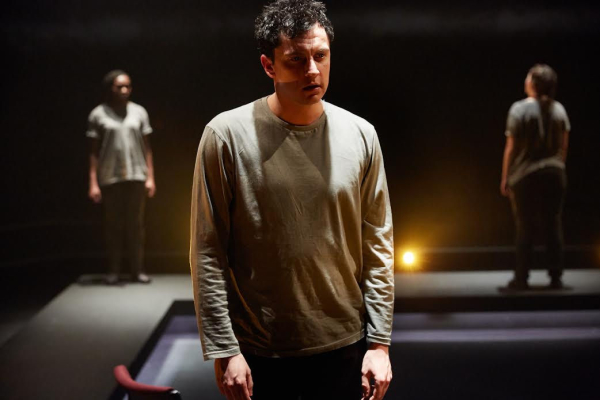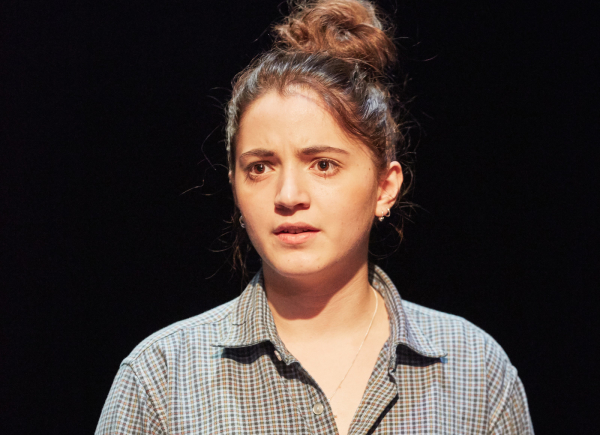4.48 Psychosis (Sheffield Theatres)

© Mark Douet
There are as many ways to interpret Sarah Kane's 4.48 Psychosis as there are lines in her anarchic, post-dramatic play. Sometimes dismissed as Kane's "suicide note", "4.48 Psychosis'' is a complex examination of sanity and madness, with a chaotic structure to match. With no lines attributed to any character, or even performer, the play leaves its production team entirely free to choose the size and composition of its cast. Charlotte Gwinner's choice of a cast of three might hint at the "Victim. Persecutor. Bystander." interpretation, suggested by a line of Kane's text.
Rakie Ayola's performance certainly fulfils the bystander role; she seems adrift from the other two performers, and not quite in the same play. Her delivery is trapped in a style of poetic declamation, which does not allow Kane's poetry to deliver the surprises it contains. Tom Mothersdale seems to take the role of victim, playing depression as a sulky petulance that gets the laughs out of Kane's more sardonically humorous lines, but with time, becomes somewhat one-dimensional.
Only Pearl Chanda seems to possess the mercurial deftness of style required to flick between the moments of impassioned anger and "pathological grief" that Kane's play demands, and suggest its underlying fear that there is perhaps a victim, persecutor and bystander within us all. Here, as in 4.48's sister production of Crave, being produced simultaneously by Sheffield Theatres, the rawness of Chanda's presence seems to suggest something of Kane herself, and the resulting performance is one that holds your attention throughout.
Gwinner's production utilises the same stripped-back aesthetic as Crave, but takes it even further: grey clad performers against a grey set. Again, Hartley T A Kemp's "stark light" (a quality referenced within the lines of the play) sets a subtly suitable tone, but here, Christopher Shutt's sound, which begins the play with the oppressive ticking of clocks, sometimes appears a little forced.
The other key feature of Gwinner's production is that she and her cast have made a considerable effort to excavate some more realistic moments of character and dialogue from Kane's attempts to resist it. This leads to effective moments of engagement within the sections of text that can submit to such a process. However, such an approach causes problems when it comes to the text's more chaotic sections, which, in this production, do not always sit right. The overall result is a competent production that often makes "sense" of Kane's text, but does not always allow its raw poetry to sing to its full effect.
4.48 Psychosis continues at the Sheffield Theatres Studio until 21 March 2015











